
Home > Study in Canada > Lakehead University - Orillia Campus > Bachelor of Arts and Science (Honours) in Interdisciplinary Studies with Concentration in Social Justice
Bachelor of Arts and Science (Honours) in Interdisciplinary Studies with Concentration in Social Justice
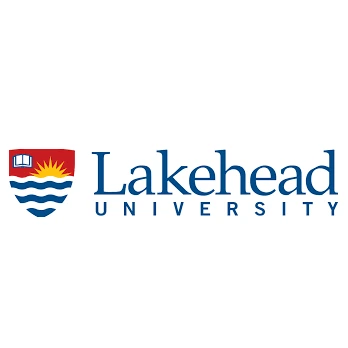 Lakehead University - Orillia Campus, Canada
Lakehead University - Orillia Campus, Canada

CAD 30468
Annual Tuition Fee

CAD 135
Application Fee

48 months
Duration

6.5
IELTS

80
TOEFL

70%
Min GPA
Program Overview
Our Interdisciplinary Studies program is flexible in its design, allowing you to customize your educational experience. You will be encouraged to think beyond the confines of a traditional undergraduate degree and take a range of courses in different disciplines that are oriented to your individual career aspirations.
As an Interdisciplinary Studies major, you can choose any two disciplinary areas from the following:
- Anthropology
- Biology
- Criminology
- English
- General Science
- Geography
- History
- Media Studies
- Political Science
- Psychology
- Sociology
You will develop advanced critical thinking skills, problem-solving strategies and specialized knowledge pertaining to a variety of topics. We also offer the ability to pursue concentrations in Human Nature, Social Justice, and International Conflict and Human Rights.
You may also choose to combine your degree with a Concurrent Education degree that allows you to teach Primary-Junior grades. If you are thinking about teaching in the future, our Interdisciplinary Program provides the broad range of knowledge necessary to teach at the Primary-Junior level.
Social Justice Concentration
The study of social justice centres on questions relating to the distribution of society’s benefits across its population. This concentration takes students into discussions about their role in the creation of democratic communities that actively promote social equality, human rights, and fair opportunities for everyone, regardless of differences in class, race, gender, ethnicity, ability, or sexual orientation. The program of study includes problem-based inquiries into poverty, marginalization, and discrimination as well as exploration of various ways in which media, educational systems, literature, public policies, social institutions, and legal structures might construct and perpetuate inequalities or assist in addressing and overcoming systemic and other oppressions. A particular focus on Indigenous justice is explored in some courses. Moreover, some courses make active connections between the classroom and local organizations, including not-for profit agencies and community groups.
A focus on Social Justice is one of the pillars of Lakehead University, not only in the Academic Plan but also the Strategic Management Agreement. Given the importance for society of questions relating to social justice, debates on this topic are inherently interdisciplinary. Most disciplines provide key descriptions and definitions of many injustices and ideal solutions present in society. This is an area in which sociologists, criminologists, political scientists, and scholars of media and literature all work together to analyze the complexity of problematic situations and envision equitable solutions. As a result, this program offers a spectrum of courses drawn from a range of Social Science and Humanities disciplines, addressing questions such as:
- What is social justice? How is social justice different from just plain justice?
- How does a society decide how much social justice is the right amount? Do different societies value social justice in different amounts?
- Why do modern societies seem to becoming more and more unequal over time? Should we do anything about this? Is inequality “natural”?
- What are the criminological impacts of social inequality and systemic discrimination?
- Why are the inmates of Canada’s jails and prisons drawn disproportionately from the ranks of poor people and racial minorities, and especially from First Nations and Afro-Canadian communities?
- How are race, class, gender, and sexuality stereotypes reinforced and/or challenged in literature and in different forms of media?
- How can imaginative constructions, fictional stories, or digital media strategies assist in probing and resisting sexism, racism, homophobia, and other injustices?
- How do social policies and political processes shape the future of local and global justice? What is involved in ethical decision making?
- How can a peaceful, just society be created and maintained?
- What types of skills and professional careers can contribute the most to the development of socially just societies?
A concentration in social justice gives students interdisciplinary opportunities and critical skills to investigate various inequalities as well as the potential to imagine and propose positive social change through policy and practice.
The Social Justice concentration will appeal to individuals who are community-oriented and willing to engage as citizens and problem-solvers with respect to equity and human rights. It would also appeal to active and life-long learners, educators, artists, writers, and politically active individuals. This concentration leads to work, career, community engagement, and further study opportunities in the fields of education, policing, public service, social work, women’s studies, community justice, the charity and not-for-profit sectors, law and policy development, community organizing, media and journalism, and the arts. For those interested in graduate studies, Lakehead offers an MA in Social Justice for which this concentration would provide an ideal background, although other graduate programs would be appropriate as well.
Additional Information
Program Level 4-Year Bachelor's Degree
College/University Processing Time 14 Days
Program Format Full-Time
Post-Graduation Work Permit (PGWP) 
General Admission Requirement
- IELTS
- Minimum Overall Score - 6.5 - With No Band Less Than - 6
- TOEFL
- Minimum Overall Score - 80 - With no score less than - 19
- PTE
- Minimum Overall Score - 58 - With no score less than - 50
- DUOLINGO
- Minimum Overall Score - 110.0
Academic Requirement
- Minimum Level of Education Required: To be accepted into this program, applicants must have Grade 12 / High School Diploma or equivalent including the following required course(s):
- English
Similar Programs


Humber Polytechnic - North Campus
Intake Sep 2025
Sep 2024, Jan 2025

Application Fee

Duration
Test Score
7
IELTS
100
TOEFL
75
Min GPA


Humber Polytechnic - North Campus
Intake Sep 2025
Jan 2025

Application Fee

Duration
Test Score
6.5
IELTS
84
TOEFL
70
Min GPA


Humber Polytechnic - North Campus
Intake Sep 2025
Sep 2024, Jan 2025

Application Fee

Duration
Test Score
6.5
IELTS
84
TOEFL
70
Min GPA


Humber Polytechnic - North Campus
Intake Sep 2025
Sep 2024, Jan 2025

Application Fee

Duration
Test Score
6.5
IELTS
84
TOEFL
70
Min GPA


Humber Polytechnic - North Campus
Intake Sep 2025
Sep 2024, Jan 2025

Application Fee

Duration
Test Score
6.5
IELTS
84
TOEFL
70
Min GPA


Humber Polytechnic - North Campus
Intake Sep 2025
Sep 2024, Jan 2025

Application Fee

Duration
Test Score
6.5
IELTS
84
TOEFL
70
Min GPA


Humber Polytechnic - North Campus
Intake Sep 2025
Sep 2024, Jan 2025

Application Fee

Duration
Test Score
6.5
IELTS
84
TOEFL
70
Min GPA


Humber Polytechnic - North Campus
Intake Sep 2025
Sep 2024, Jan 2025

Application Fee

Duration
Test Score
6.5
IELTS
84
TOEFL
70
Min GPA


Humber Polytechnic - North Campus
Intake Sep 2025
Sep 2024, Jan 2025

Application Fee

Duration
Test Score
6.5
IELTS
84
TOEFL
70
Min GPA
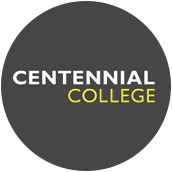

Centennial College - Progress Campus
Intake Sep 2025
Jan 2025, May 2024, Sep 2024

Application Fee

Duration
Test Score
6.5
IELTS
88
TOEFL
60
Min GPA
.webp)

Cambrian College - Barrydowne Campus
Intake
Jan 2025, Sep 2024

Application Fee

Duration
Test Score
6.5
IELTS
88
TOEFL
50
Min GPA
.webp)

Conestoga College - Doon Campus
Intake Sep 2025
Jan 2025, Sep 2024

Application Fee

Duration
Test Score
6.5
IELTS
88
TOEFL
70
Min GPA
.webp)

Conestoga College - Doon Campus
Intake Sep 2025
Sep 2024

Application Fee

Duration
Test Score
6.5
IELTS
88
TOEFL
65
Min GPA
.webp)

Conestoga College - Doon Campus
Intake Sep 2025
Sep 2024

Application Fee

Duration
Test Score
6.5
IELTS
88
TOEFL
65
Min GPA
.webp)

Conestoga College - Doon Campus
Intake Sep 2025
Sep 2024

Application Fee

Duration
Test Score
6.5
IELTS
88
TOEFL
65
Min GPA
.webp)

Conestoga College - Doon Campus
Intake
Sep 2024, Sep 2025

Application Fee

Duration
Test Score
6.5
IELTS
88
TOEFL
65
Min GPA
.webp)

Conestoga College - Doon Campus
Intake Sep 2025
Sep 2024

Application Fee

Duration
Test Score
6.5
IELTS
88
TOEFL
65
Min GPA
.webp)

Conestoga College - Doon Campus
Intake
Jan 2025

Application Fee

Duration
Test Score
6.5
IELTS
88
TOEFL
65
Min GPA
.webp)

Conestoga College - Doon Campus
Intake Sep 2025
Sep 2024

Application Fee

Duration
Test Score
6.5
IELTS
88
TOEFL
65
Min GPA
.webp)

Conestoga College - Doon Campus
Intake Sep 2025
Sep 2024

Application Fee

Duration
Test Score
6.5
IELTS
88
TOEFL
65
Min GPA
Tuition Fee
The values given below are estimated figures, excluding extra charges like material fee, student activity fees, athletic fees, health care, etc., for courses. To know more, please visit the Programs page.
Average Tuition Fee Per Year
30468
Tuition Fee
(CAD)
CAD 135
Application Fee
(CAD)
12000 Per year
Average Cost of Living
(CAD)
The living costs include the total expenses per month, covering accommodation, public transportation, utilities (electricity, internet), books and groceries.
Check program website for more information about funding options.
Scholarships
Scholarship
Under Graduate Entrance Scholarship:
Non-Canadian citizens who are entering Lakehead University from a high school, or who are transferring from an international college or university, will be considered for the Undergraduate Entrance Scholarships. The scholarship is available to the top international students applying to Lakehead University for 2024-2025.
International Entrance Scholarships 2024-2025 automatically considered. No scholarship application is required.
| Academic Average (Canadian Equivalent) |
IB Average | Scholarship Total4 (in Canadian dollars) |
Scholarships Available |
| 90.0%+ | 35+ | $40,000 ($10,000 x 4 years)1 | Limited |
| 80.0% - 89.9% | 30-34 | $30,000 ($7,500 x 4 years)2 | Limited |
| 75.0% - 79.9% | 28-29 | $6,000 ($6,000 in Year 1 only)3 | Limited |
1. Renewable provided a 90% average is achieved in each academic year. If a student's university academic average falls between 80.0% - 89.9%, the student will receive an amended scholarship valued at $7,500 CAD/year for each subsequent academic year for the remaining term of the scholarship.
2. Renewable provided an 80% average is achieved in each academic year.
3. Non-renewable, one-time only scholarship awarded in Year 1.
4. Maximum length of scholarship term is 4 academic years or until the first degree is awarded, whichever occurs first. To be considered eligible for scholarship consideration, recipients must be entering Years 1, 2, or 3 of a minimum 4-year undergraduate degree program. Recipients whose status changes and may be charged domestic fees will have their scholarship value reassessed to equate to the domestic entrance scholarship grid and regulations available at that time.
Graduate Scholarship:
Graduate Assistantships
Graduate Assistant appointments may be offered to some full-time graduate students (including Visa students) at a rate of $10,506.69 (2022-23) at the Master's level; and $11,457.79 (2022-23) at the Doctoral level. A regular appointment constitutes a maximum of 270 hrs of work over the Fall and Winter terms, averaging not more than 10 hours of work per week. Representative duties, include but are not limited to: preparing classes, teaching, demonstrating, leading seminars, supervising laboratories, marking, consulting with students, holding assigned office hours, setting tests, examination and lab sets, conducting field trips, and providing other academic support assistance. A graduate student is eligible to hold a maximum of two full-time appointments at the Master's level or four full-time appointments at the Doctoral level.
Faculty Research Awards for Graduate Students
Some graduate students may also receive a Faculty Research Award. This stipend may be paid to a full–time degree candidate for research or academic activities relevant and related to the student's field(s) of study within the academic program. Faculty Research Awards are awarded by the student's supervisor.
Not sure what you are looking for?
Don’t worry, we are here to help.
Popular Universities to Study Abroad
World class education waiting for you.
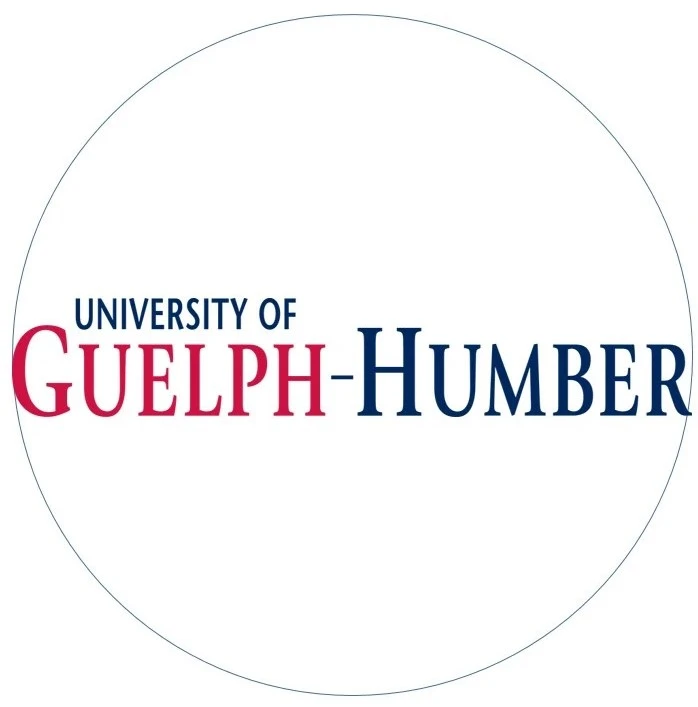
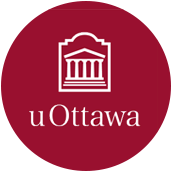
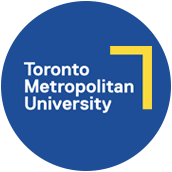
Ontario, Canada • 65 Programmes
Tuition Fee : CAD 31500 - 39000 / year
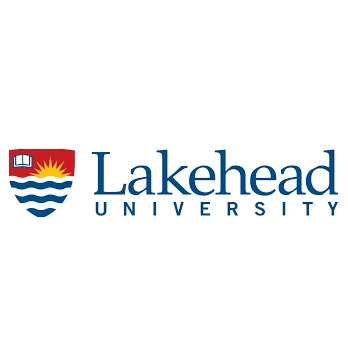
Ontario, Canada • 210 Programmes
Tuition Fee : CAD 28500 - 38000 / year
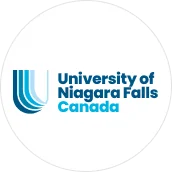
Ontario, Canada • 7 Programmes
Tuition Fee : CAD 20000 - 29000 / year
Top Places To Study In Canada
Province wise Popular university and colleges for Studying abroad.
- Universities in Alberta
- Universities in British Columbia
- Universities in Manitoba
- Universities in New Brunswick
- Universities in Newfoundland and Labrador
- Universities in Nova Scotia
- Universities in Ontario
- Universities in Prince Edward island
- Universities in Quebec
- Universities in Saskatchewan
- Universities in Yukon Territory
Popular English Language Proficiency Exams
Blogs and Articles
Study in Canada Blogs & Articles
Updated on • Jan 24,2025 10:50 AM IST • Study in Canada
Canada Student Visa Interview Questions
Updated on • Jan 23,2025 12:16 PM IST • Study in Canada
Updated on • Dec 05,2024 05:04 PM IST • Study in Canada
Best Cities to Study in Canada
Updated on • Nov 21,2024 05:23 PM IST • Study in Canada
Study intakes in Canada - Fall, Winter & Summer
Updated on • Oct 03,2024 12:51 PM IST • Study in Canada
New Rules & Regulations in Canada for International Students
Updated on • Aug 31,2024 03:19 PM IST • Study in Canada
Public Transportation in Canada for International students
Updated on • Aug 29,2024 05:08 PM IST • Study in Canada
Healthcare in Canada for international students
Updated on • Aug 27,2024 05:12 PM IST • Study in Canada
LLB in Canada for Indian Students After 12th
Updated on • Jun 28,2024 05:48 PM IST • Study in Canada
Benefits of 1+1 Programs in Canada
Updated on • Jul 12,2024 04:06 PM IST • Study in Canada
Increase your CRS Score with 1-year Master's in Canada
Updated on • Jun 11,2024 05:53 PM IST • Study in Canada
Hotel Management Courses in Canada: Top Universities & Available Scholarships
Updated on • May 31,2024 05:57 PM IST • Courses in Canada
Management Courses in Canada: Universities, Fees, Requirements, Scholarships & Jobs
Updated on • May 28,2024 01:39 PM IST • Study in Canada
Updated on • May 24,2024 04:49 PM IST • Study in Canada
Top Universities For Computer Science Courses in Canada
Updated on • May 28,2024 11:02 AM IST • Study in Canada
Increase Your PGWP Duration with 2 Years of Study in Canada
Updated on • May 22,2024 10:58 AM IST • Study in Canada
Canada Increases Off-Campus Working Hours for International Students
Updated on • May 22,2024 05:48 PM IST • Study in Canada
Student Education Loan to Study in Canada - Eligibility, Documents Required, How to Apply
Updated on • May 18,2024 03:27 PM IST • Education Loans
Teaching Courses in Canada for Indian Students
Updated on • May 17,2024 11:26 AM IST • Study in Canada
Universities in Canada for International Students
Updated on • May 14,2024 11:49 AM IST • Study in Canada









